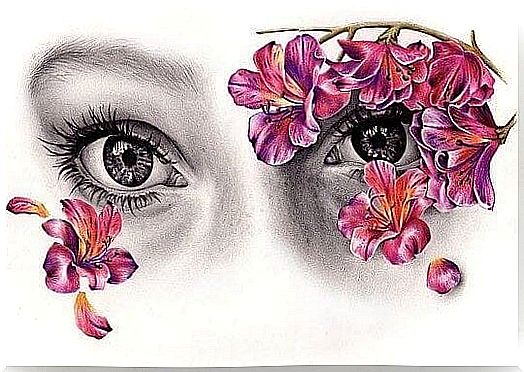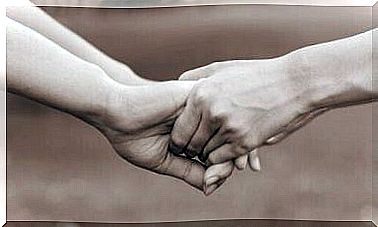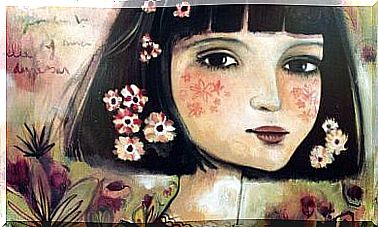Don’t Want Me Tame … Neither Submissive Nor Orderly

Love me like this, free, sometimes messy, daring, instantly chaotic, imperfect, always bright. Do not wish me docile, submissive or quiet, let’s not idealize a love of pamphlets or erase those nuances that make you and me unique. In case you want it that way, better let me go, return me to my world, to my currents, to my nourishing loneliness, to my roots …
Benjamin Franklin said with great success that in our world there are three especially hard things, one was steel, another was diamond, and the third was getting to know oneself. It is clear that such a task is not easy, that immersing ourselves in the reefs of our insecurities, of our fears, concerns, virtues and darkness requires a patient and courageous craftsmanship.
However, few things are as valuable as delimiting those personal boundaries, than conquering private spaces and self-knowledge to maintain an authentic fidelity to ourselves. Only in this way will we be able to establish more satisfactory affective relationships, only in this way will we shape a more integral existence in accordance with our values, where behaviors and thoughts are always in rigorous balance.
Now, there is a fact that we should keep in mind. Recently, Dr. Yi Nan Wang, a well-known personality psychology researcher, explained in one of his works that a good part of couples come to “dilute” part of their self to achieve a better harmony with the person they love. A desire for communion that involves showing a more docile attitude and prioritizing the needs of the other while taking our own to the drawer of oblivion.
Thus, what Dr. Wang suggests is that we be able to develop what he himself has coined as “balanced authenticity.” It is a concept based on Erikson’s psychosocial theory, where we are reminded that every mutually satisfactory relationship first goes through a phase where one has been able to define their identity.

The need to practice healthy authenticity
Maybe in the past you were docile, manageable, accommodating … Most of us were for a few years because that’s how we were educated, because others wanted it. In this way, of course, we were easier to deal with, to control; we were good at adjusting ourselves to the gears of a society where sometimes having our own voice is little more than audacity.
All this makes us have a certain fear or reluctance to show our authentic “self”. Likewise, and despite being clear that these thoughts, voices and feelings are essential to our integrity, we tell ourselves that no, that it is better that they are not seen, that they are not heard, that they are not too noticeable. We are afraid of being rejected by them, we are afraid of upsetting others, damaging their feelings, breaking the schemes that had been made about us …
However, in what state is our own personal scheme or our identity? It is boycotted. We become our own emotional sniper by not being able to practice healthy authenticity. We become victims of our own naivety for thinking that being authentic can cause some harm to those who make up our environment, when it is not.

It was Aristotle who once said that the healthiest authenticity passes through what he called a “golden balance”, where being frank does not have to harm or cause rejection, since what we really practice is honesty.
Do not want me docile, love me with my shades, with my lights and darkness
Dr. Yi Nan Wang from Beijing Normal University recently created the interesting “AIRS” (Authenticity in relationships scale), which aims to measure the level of authenticity of the two members in a relationship. Something with which it has been concluded is that one of the keys to social well-being in the population is precisely that individuals are capable of practicing that aforementioned personal honesty and that authentic sense of identity where we do not boycott ourselves or allow ourselves to be others do.
A) Yes,
- I always hide my true thoughts for fear of the disapproval of others.
- I like to serve others.
- I dare not tell others the truth so as not to damage their feelings.
- I am fully aware that I must commit to myself.
- I always find ways to reconcile my needs and those of others.
- I would never give up my true self or allow whoever is with me to do it for me.
- I usually tell the truth without worrying about how others might react.
- I prioritize myself, the feelings of others are not important
- I almost always offend people by speaking frankly.

How to rate the scale of authenticity
Surely we have already had a slight idea about how the scale is scored. However, it can be said that it measures three dimensions:
- Items 1-3 represent distorted authenticity, where people tend to renounce our own feelings and identity for those of others.
- Items 4-6 represent balanced authenticity or the ability to express ourselves freely and with respect, taking into account both our needs and those of others.
- Items 7-9 represent egocentric authenticity or that more extreme tendency where we can fall into selfishness or aggression by prioritizing ourselves to the point of hurting or offending others.
To conclude, as we have been able to see not only in couple relationships, we must be able to practice that balanced authenticity where honesty is combined with respect, freedom with affiliation and self-esteem with the couple’s own growth. It is actually a dimension to practice in all areas of our life, where it is not worth being docile or submissive, but bright, with character, unique and of course, wonderful.
Images courtesy of Kelly Smith









